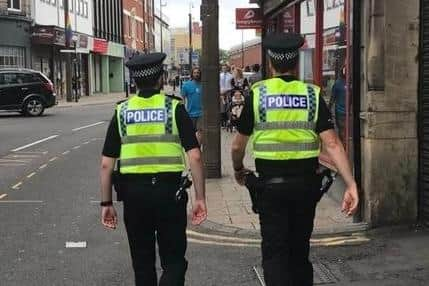Half of Doncaster children who enter criminal justice system for first time dealt with through ‘community resolution’
and live on Freeview channel 276
Over the last few years, Doncaster Council along with South Yorkshire Police, have adopted a more rounded approach in order to stop children entering the criminal justice system and affecting life chances through employment and education.
Evidence shows the majority of children who come into contact with law enforcement for the first time and are dealt with using a ‘community solution’ are unlikely to offend again.
Advertisement
Hide AdAdvertisement
Hide AdDoncaster’s Youth Justice Plan, which sets out a variety of data on children entering the criminal justice system, shows that nearly 50 per cent of ‘first time entrants’ (FTEs) are resolved through this way.


The Doncaster Triage Panel received a total of 190 referrals from South Yorkshire Police between April 1, 2021 and March 31 2022, of which around half received a community resolution.
Of the data, 15 children received a youth conditional caution and just one child was fully prosecuted through the courts system.
During 2021 nationally, Doncaster compares to Luton and Warwick in the number of FTEs at 124.
Advertisement
Hide AdAdvertisement
Hide AdBracknell Forest had the fewest at 30 while Islington in North London had 500 in just one year.
Doncaster has progressed and the FTE number now sits below the South Yorkshire, Yorkshire and England average.
Figures also show the FTE number fell from 223 in 2019 to its current position of 124.
Andy Hood, assistant director of practice improvement at DMBC, said: “Entering the Youth Justice System can have a severe impact on young people’s career prospects as they acquire a criminal record which may have to be disclosed to prospective employers.
Advertisement
Hide AdAdvertisement
Hide Ad“There is also a risk that bringing young people into the Youth Justice System prematurely can ‘criminalise’ them, such that they start to see themselves as offenders and begin to adopt pro-criminal associates and lifestyles.
“Therefore, bringing young people into the Youth Justice System should be a last resort, taken only when all other viable options have been exhausted.
“Where children come into contact with criminal justice agencies, the multi-agency triage process has continued as normal. This has meant that wherever possible, children have been diverted to the lowest possible disposal in line with an assessment of their risks, needs and vulnerabilities.”